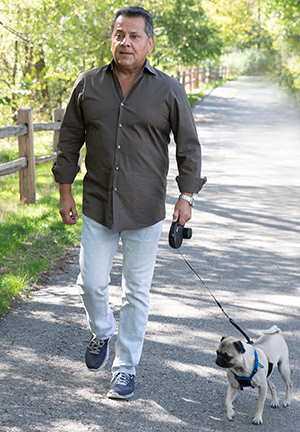For the first several weeks after your surgery, you'll be gaining a little more energy and strength each day. Breathing may be uncomfortable at first. You also may be short of breath. Take things slowly. Rest when you get tired. Your doctor or nurse can talk with you about what you can and can't do as you recover.
Caring for your incision
Your health care provider will tell you when it's OK to shower. When you shower, wash your incision gently with warm (not hot) water and mild soap. Bruising, itchiness, soreness, and numbness at your incision site are normal for several weeks after surgery. Drainage, bleeding, warmth, severe redness, and foul-smelling odor are not normal. Call your provider if you have any of these.
Taking medicines
Take your pain medicines as your health care provider tells you to. Don't wait until the pain gets bad before you take them. In addition to medicine for pain, your provider may prescribe other medicines. Oxygen may also be prescribed.
Easing into activity
For
You'll probably feel short of breath for several weeks. This is normal. It will get better with time. As you begin to feel better, you can gradually add more strenuous activities. Ask your health care provider how long to wait before returning to sexual activity, driving, and work.
When to call your doctor
Contact your health care provider right away if you have:
-
Redness, bleeding, swelling, drainage, increasing pain, or warmth at the incision site.
-
A fever of
100.4 °F (38 °C) or higher, or as directed by your provider. -
Swelling in the legs.
Call 911
Call
-
Sudden, severe shortness of breath.
-
Rapid heartbeat or "fluttering" in your chest.
-
Sudden, severe sharp chest pain that doesn't go away, or unusual chest pain.
-
Fainting or passing out.


